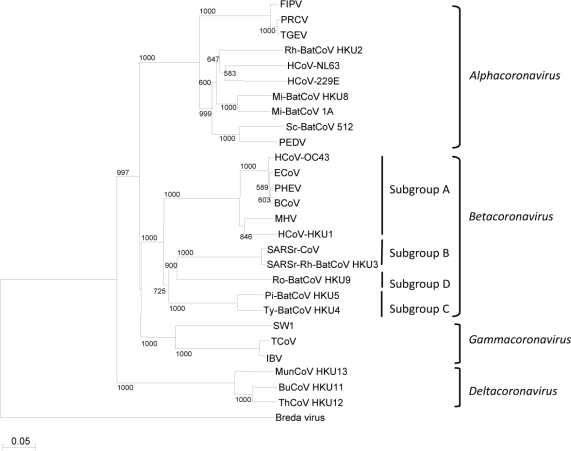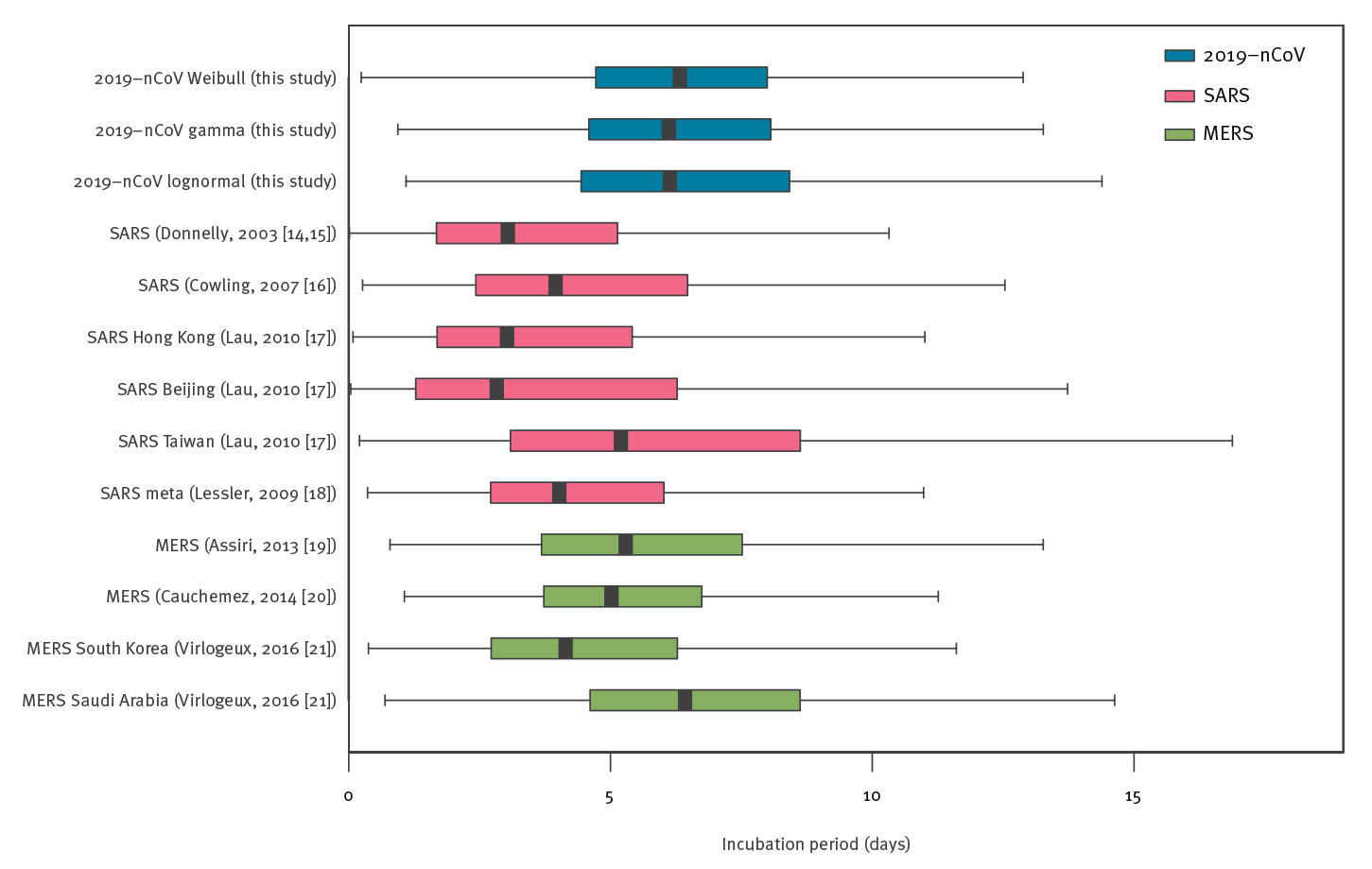Difference Between Coronaviruses – Alpha, Beta, Gamma, and Delta
Alpha-coronaviruses are common in bats but have affected people in the past. Beta-coronaviruses include SARS, MERS, COVID-19 and some viruses of bats. Gamma-coronaviruses occur in dolphins and bats. Delta-coronaviruses occur in swine and birds.

What is Alpha-Coronavirus?
Definition:
An alpha-coronavirus is one type of coronavirus that commonly occurs in bats and has on occasion infected humans.
Host animals and origin:
Alpha-coronaviruses have been found primarily in bats. Two types, NL63 and 229E have been detected in people where they caused illness. The origin of alpha-viruses are believed to be bats.
Type of illness caused, including symptoms:
Certain types of alpha-coronavirus cause very bad diarrhea in pigs but some types also cause a respiratory illness instead. The coronavirus NL63 and 229E strains have been found in humans where they caused respiratory symptoms.
Features unique to this virus group:
The morphological structure of the virus is like other coronaviruses in that is has a crown-shaped appearance but the spike proteins on the outer surface of the virus are different in that they are not cleaved or divided in anyway.

What is Beta-Coronavirus?
Definition:
Beta-coronavirus include a group of viruses that cause contagious respiratory human illnesses including COVID-19.
Host animals and origin:
These viruses include types of virus found in bats which have shown great similarity in amino acid structure when compared with the SARS coronavirus. Beta-coronaviruses have caused MERS, SARS, and COVID-19 in people. The likely origin of beta-coronaviruses is now thought to be bats.
Type of illness caused, including symptoms:
These are respiratory viruses causing problems with the lungs. COVID-19 in particular has shown to be very damaging to the lungs, causing a type of pneumonia and affecting multiple organ systems in the body. In severe cases patients go into multiple organ failure and die. The COVID-19 has recently been found to mutate with a newly discovered variant being more infectious than the first COVID-19 virus that was sequenced.
Features unique to this group:
Beta-coronaviruses all have a special kind of protein called hemagglutinin esterase and also have an ORF1ab replicase polyprotein present, which is not found in other types of coronavirus.

What is Gamma-Coronavirus??
Definition:
Gamma-coronavirus causes illness in birds mainly, although one form was found in dolphins.
Host animals and origin:
Gamma-coronaviruses have only been found in bird species and in dolphins, in which they cause illness. This type of virus is thought to have arisen first in avian species.
Type of illness caused, including symptoms:
This virus is the type that causes bronchitis that can be spread to other organisms.
The gamma-coronavirus group contains viruses that are responsible for a type of infectious bronchitis, in which the bronchi and bronchioles of the respiratory system are affected.
Features unique to this group:
These types of coronavirus tend to be larger than most in terms of the size of the genome, with some up to 32,000 nucleotides and scientists have also found that there are some unique structures in the reading frame of the genome.

What is Delta-Coronavirus??
Definition:
Delta-coronavirus is a type of virus that is structurally different from other coronaviruses and commonly causes illness in both birds and swine.
Host animals and origin:
This coronavirus has only been recorded in pigs and birds and is not known to ever affect humans. Ancestral forms of the virus are believed to be found in birds.
Type of illness caused, including symptoms:
Delta-coronaviruses cause problems in the intestines of the infected animal, resulting in gastrointestinal distress.
Features unique to this group:
The delta-coronavirus has a unique transcription regulatory sequence, namely 5′-ACACCA-3′, which is present in the genome and that, is not found in other coronaviruses.
Difference between Coronavirus – alpha, beta, gamma, and delta
Definition
Alpha-coronavirus is a type of virus found mainly in bats. Beta-coronavirus includes respiratory viruses like COVID-19. Gamma-coronaviruses occur in dolphins and birds. Delta-coronaviruses are typically found in swine and birds.
Ancestral host
Bats are believed to be the ancestral host of both alpha- and beta-coronaviruses. Birds are believed to be the ancestral host animals of both delta-and gamma-coronaviruses.
Examples
Examples of alpha-coronaviruses include (SeACoV) in pigs, HKU2, HKU8 in bats, and 222NE, NL63 in humans. Examples of beta-coronaviruses include SARS-CoV1, SARS-CoV2 or COVID-19, MERS-CoV in humans and (Ty-BatCoV HKU4) in bats. Examples of gamma-coronaviruses include BdCoV in dolphins and SW1 in Beluga whale. Examples of delta-coronaviruses include HKU11, HKU12, HKU13 found in birds and HKU15 in pigs.
Illness
Alpha-coronavirus causes gastrointestinal or respiratory illness. Beta-coronavirus causes respiratory illness. Gamma-coronavirus causes infectious bronchitis while delta-coronavirus causes gastrointestinal illness.
Unique feature
Alpha-coronaviruses have an uncleaved spike protein. Beta-coronaviruses has hemagglutinin esterase and an ORF1ab replicase polyprotein. Gamma-coronavirus has a unique reading frame and delta-coronavirus has a unique transcription regulatory sequence.
Table comparing Coronavirus – alpha, beta, gamma, and delta

Summary of Coronaviruses – alpha, beta, gamma, and delta
- Coronaviruses can be placed into one of four different groups, alpha, beta, gamma, and delta.
- Only two types, alpha- and beta-coronaviruses have been found to cause sickness in people.
- The COVID-19 is a beta-coronavirus which is responsible for the current pandemic.
- Difference Between Rumination and Regurgitation - June 13, 2024
- Difference Between Pyelectasis and Hydronephrosis - June 4, 2024
- Difference Between Cellulitis and Erysipelas - June 1, 2024
Search DifferenceBetween.net :
Leave a Response
References :
[0]De Sabato, Luca, et al. "Full genome characterization of two novel Alpha-coronavirus species from Italian bats." Virus research 260 (2019): 60-66.
[1]He, Wan-Ting, et al. "Genomic epidemiology, evolution, and transmission dynamics of porcine deltacoronavirus." Molecular Biology and Evolution (2020).
[2]Pillaiyar, Thanigaimalai, et al. "The recent outbreaks of human coronaviruses: A medicinal chemistry perspective." Medicinal research reviews (2020).
[3]Image credit: https://commons.wikimedia.org/wiki/File:James_A._Backer_et_al._-_Incubation_period_of_2019_novel_coronavirus_(2019-nCoV)_infections_among_travellers_from_Wuhan,_China,_20%E2%80%9328_January_2020_-_2000062-f3.gif
[4]Image credit: https://commons.wikimedia.org/wiki/File:SARS-CoV-2_structure_%26_genome.svg
[5]Image credit: https://commons.wikimedia.org/wiki/File:Phylogenetic_tree_of_coronaviruses.jpg
[6]Image credit: https://commons.wikimedia.org/wiki/File:3D_medical_animation_coronavirus_structure.jpg
